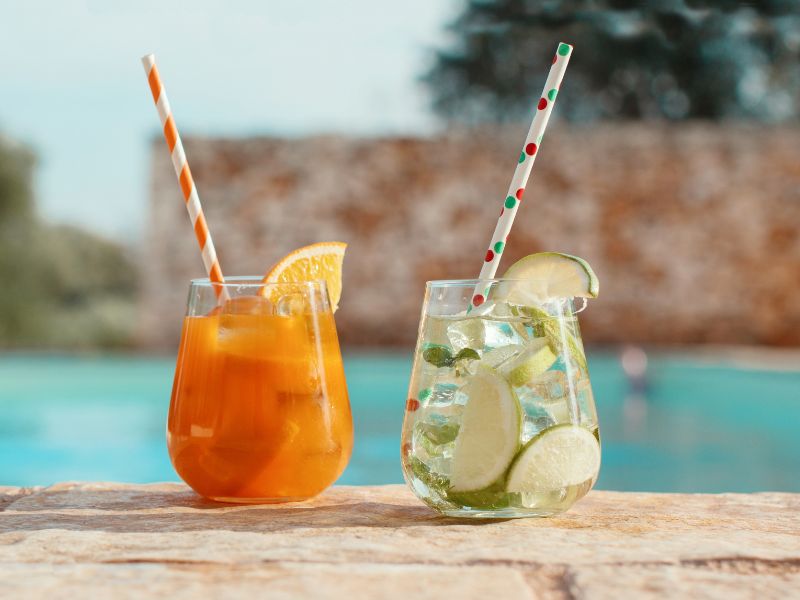April is Alcohol Awareness Month, making it the perfect time to talk about something many people wonder about: how does drinking affect diabetes? Whether you enjoy an occasional glass of wine or a weekend cocktail, it’s important to understand how alcohol interacts with your blood sugar levels, medications, and overall health.
Let’s talk about how alcohol affects your blood sugar and what you should know before raising that glass.
How Alcohol Affects Blood Sugar
Alcohol increases your risk of low blood sugar (Hypoglycemia), especially if you take insulin or drink on an empty stomach. That’s because alcohol is processed in the liver, which is also responsible for stabilizing your blood sugar levels by storing carbohydrates and releasing them into your blood as glucose when needed.
The problem is your liver struggles to juggle more than one job at once. It prioritizes metabolizing alcohol over releasing glucose, which can lead to low blood sugar. Adding to the trouble, alcohol’s impact on blood sugar isn’t always immediate. Hypoglycemia can occur hours after drinking, even while you’re asleep.
Long-Term Risks and Complications of Alcohol Use with Diabetes
Beyond immediate blood sugar changes, drinking alcohol regularly can contribute to several long-term complications for people with diabetes:
- Increased Risk of Nerve Damage (Neuropathy): Alcohol can worsen diabetic nerve damage, leading to pain, tingling, and numbness in the hands and feet.
- Liver Damage: The liver plays a vital role in regulating blood sugar. Long-term alcohol use can cause liver disease, making it harder for your body to manage glucose properly.
- Heart Disease: Excessive alcohol consumption is linked to high blood pressure, cholesterol issues, and an increased risk of heart disease, which people with diabetes are already more susceptible to.
- Weight Gain and Insulin Resistance: Many alcoholic beverages are high in empty calories, which can contribute to weight gain and worsen insulin resistance over time.
- Medication Interactions – Alcohol can interact with diabetes medications, reducing their effectiveness or leading to dangerous side effects like extreme blood sugar fluctuations.
What Experts Recommend
The American Diabetes Association suggests:
- Women: No more than one drink per day
- Men: No more than two drinks per day
- Everyone: Not drinking daily and never drinking on an empty stomach
Remember, one drink equals 12 oz of beer, 5 oz of wine, or 1.5 oz of distilled spirits.
Smart Strategies for Social Sipping
If you choose to drink, these tips can help protect your health:
- Check your blood sugar before, during, and after drinking
- Always eat food when consuming alcohol
- Stay hydrated with water between alcoholic drinks
- Wear medical ID so others know you have diabetes
- Educate friends about hypoglycemia symptoms, which can look like intoxication
Delicious Mocktail Ideas
Who says non-alcoholic drinks have to be boring? Try these diabetes-friendly mocktails:
- Berry Spritzer: Muddled berries, sparkling water, and a splash of lime juice
- Cucumber Mint Refresher: Cucumber slices, fresh mint, lime, and seltzer water
- Ginger Zing: Fresh ginger, lemon juice, and a touch of stevia in sparkling water
Drinking alcohol when you have diabetes requires some extra thought, but it doesn’t have to be off-limits. The key is moderation, smart choices, and keeping an eye on your blood sugar. If you have questions about how alcohol interacts with your medications, talk to your healthcare provider.
Need more diabetes-friendly health tips? America’s Best Care Plus is here to help! Contact us for expert advice and convenient mail-order supplies delivered to your door.

